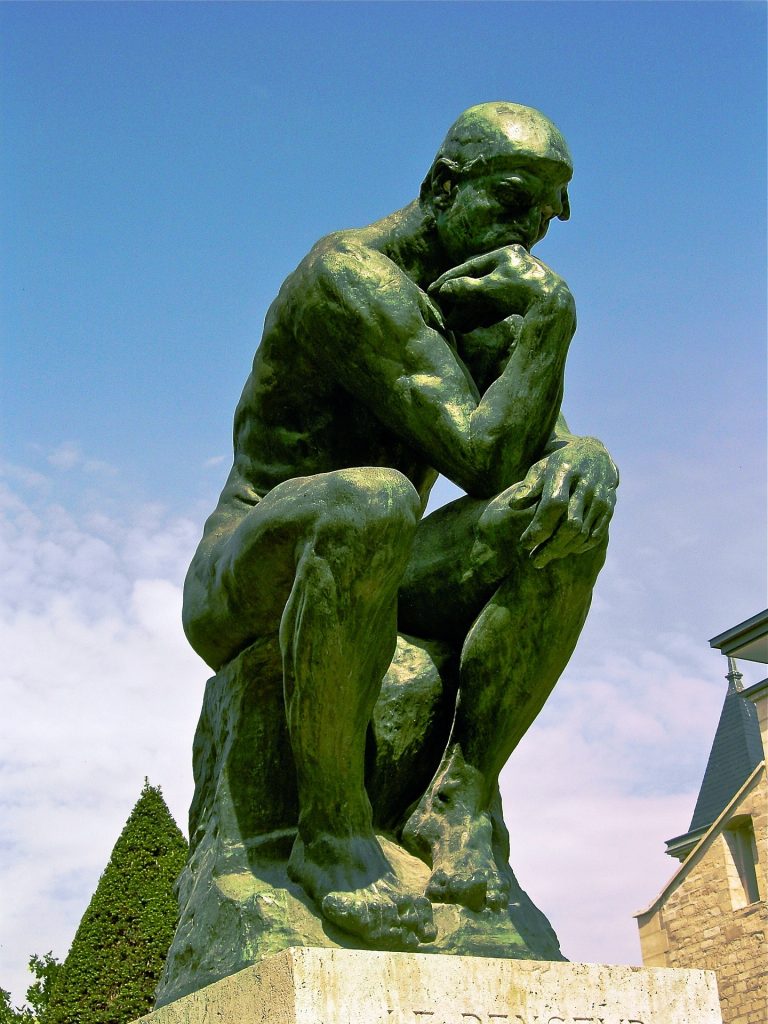
I am currently engaged in lifelong learning. And while learning to learn, I came across the terms “mistake“ and “error”. Very familiar vocabulary in everyday life. But as a learner, I asked myself the typical systemic question: What exactly is the difference here? Although the terms denote something different, there are also similarities. Do we always consciously deal with the different meanings of these terms in everyday life? According to my observations, not really, and I include myself in that. So, since different terms also mean different things, I set out to find the difference. What, at best, could I learn from this difference, I asked myself curiously. Well, let’s see…
Both terms have one thing in common. The result called “mistake“ or “error” emerges only after having done something. For oneself or in the observation of another. So what do I have to do to end up with an error? And what do I have to do for it to be a mistake? So I do have to act differently in order that in the end I can call the result one thing or the other.
Definitions are, as always, an important starting point. Accordingly, an “error” is a deviation from an optimum, defined state, procedure or the “right” thing to do. “Mistake” simply means that the action was based on an unintentionally wrong assumption. The definitions are, however, not that clear-cut. That’s why have I put them here in the context of everyday work.
If I want to commit an error, my actions must violate or disregard rules, norms, regulations or perhaps even unspoken habits. Suppose I issue the release for the introduction of a piece of software without first having carried out the prescribed formalities of test management, then I have made an error. I may even be aware of this during my actions because the company has put me under pressure. Nevertheless, it is an error. I have to take responsibility and the consequences for the result of this action. In other words, when I did it, I did not use the knowledge I could have known.
What does it look like in the case of a mistake? Here the starting point is different. There are no service regulations, standard operating procedures or rules of any kind. There is only a description of the problem, general guidelines such as vision or strategies to guide my actions. Let’s say we are talking about optimising a production process. I come up with measures that I expect will shorten the lead time. But the measures turn out to be ineffective. Here I have done something with the best of my knowledge and conscience and with the conviction that I am right and have taken an acceptable risk. Here I take responsibility for my actions and not for the result, which turned out to be a mistake. Erring and doing are not possible at the same time. Only afterwards do I realise that I was wrong. Lying is different. Lying happens at the moment of lying.
So that is the difference that makes a difference, as Bateson said. What is important for me here is the distinction in terms of what I am responsible for.
It gets more complicated when I observe others in their actions or am observed by others myself, because we construct our realities individually. Whatever I observe in others, I will judge according to my own knowledge, experience and standards as a mistake or an error according to the distinction described. If, on the other hand, my actions are deemed by others a mistake or an error, I will be able to determine and want to clarify in terms of this distinction which is true in this specific case. Confirmation or mistake. The other person does not have to see it that way. But for the clarification of differences, we do have communication.
So what is my conclusion? It is said that one learns from one’s errors. But it is not that simple. What is missing is the intermediate step of analysing and learning. That is intellectually time-consuming. Maybe that’s one reason for the lack of smart people. What I can learn is to pay more attention and follow rules. In such contexts, I have to let myself be conditioned. But an error can also give rise to a new idea if the rule proves to be nonsensical in a specific case and a better solution can be created. So pay attention to the expiry date of rules.
And what can I learn from mistakes? Don’t repeat the same thing and expect different results. I remember that this is how Albert Einstein defined stupidity. The thing to be learned here is again in a difference, namely between what I expected as the result of my actions and what really happened in the end. I can learn here to assess the initial situation with more attention and to draw conclusions from my failed attempts for more appropriate and effective actions.
Knowing this difference and dealing with it consciously is part of the basic equipment in change processes. Whether I make mistakes or errors – in the end there is always something to learn. A whole life long.
Original text: PUE
English translation: BCO
Bildquellen
- the-thinker-1144887_1920: janeb13 / Pixabay

